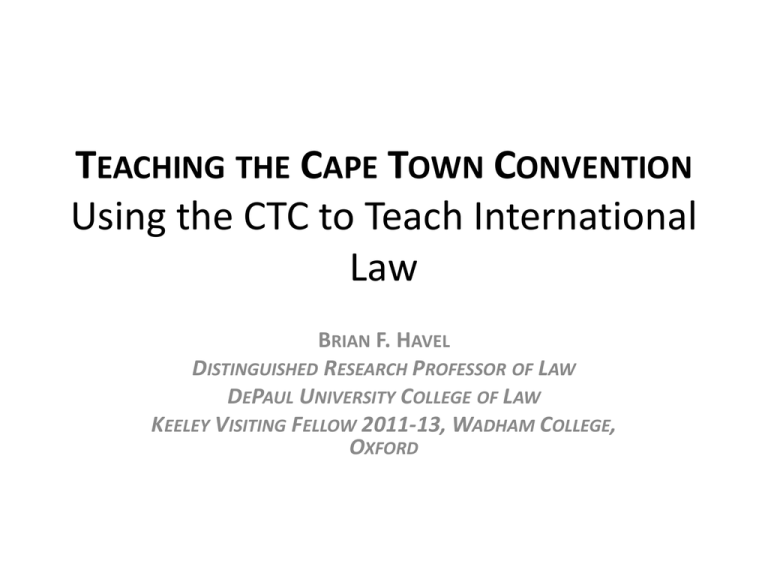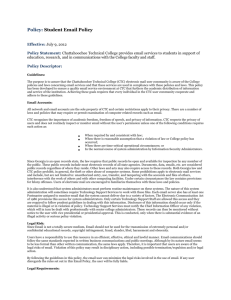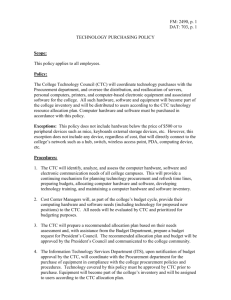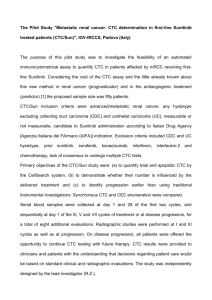Using the CTC to Teach International Law
advertisement

TEACHING THE CAPE TOWN CONVENTION Using the CTC to Teach International Law BRIAN F. HAVEL DISTINGUISHED RESEARCH PROFESSOR OF LAW DEPAUL UNIVERSITY COLLEGE OF LAW KEELEY VISITING FELLOW 2011-13, WADHAM COLLEGE, OXFORD Use CTC as an Example • International Law consists of numerous themes and topics • Most courses will not require students to know detailed substance of CTC, but it can be a valuable tool for illuminating specific concepts • The Academic Project has prepared materials for courses in: – Transnational commercial law – Secured transactions – Bankruptcy – Comparative Law – Conflict of Laws – International Business Transactions – Business School Case Study Materials for General Course on Public International Law • What can students learn from CTC about broad, fundamental international law questions? • Materials for 4 sub-topics: – Ontology & Terminology – Law-making process – Treaty Doctrine – Enforcement, Compliance & Interpretation Ontology & Terminology • Is International Law law? – CTC is rare substantive international commercial law treaty – Provides a degree of certainty and specificity more common in domestic law – Creates and protects property rights for individuals • Public or Private? – CTC is an example of modern international instruments that have dissolved traditional distinctions within international law International Law-Making Process • Students enter with conception of traditional notion of law-making as State legislative function • Role of “epistemic community” of industry, experts, ICAO, UNIDROIT, in drafting CTC is example of modern technocratic law-making • Can be used to spur critical thinking about trade-offs between technical expertise and democratic legitimacy Treaty Doctrine • CTC has unique structural components that instructor can use to demonstrate how international instruments operate • “Umbrella” Convention-Protocol structure • Declaration scheme • Relate to Jeffrey Wool’s “policy-based unification model” Enforcement, Compliance & Interpretation • CTC demonstrates importance of enforcement mechanisms in international law – Substantive international law treaty meaningless without well-conceived remedies – Enforcement through domestic courts – Self-help provisions unique











